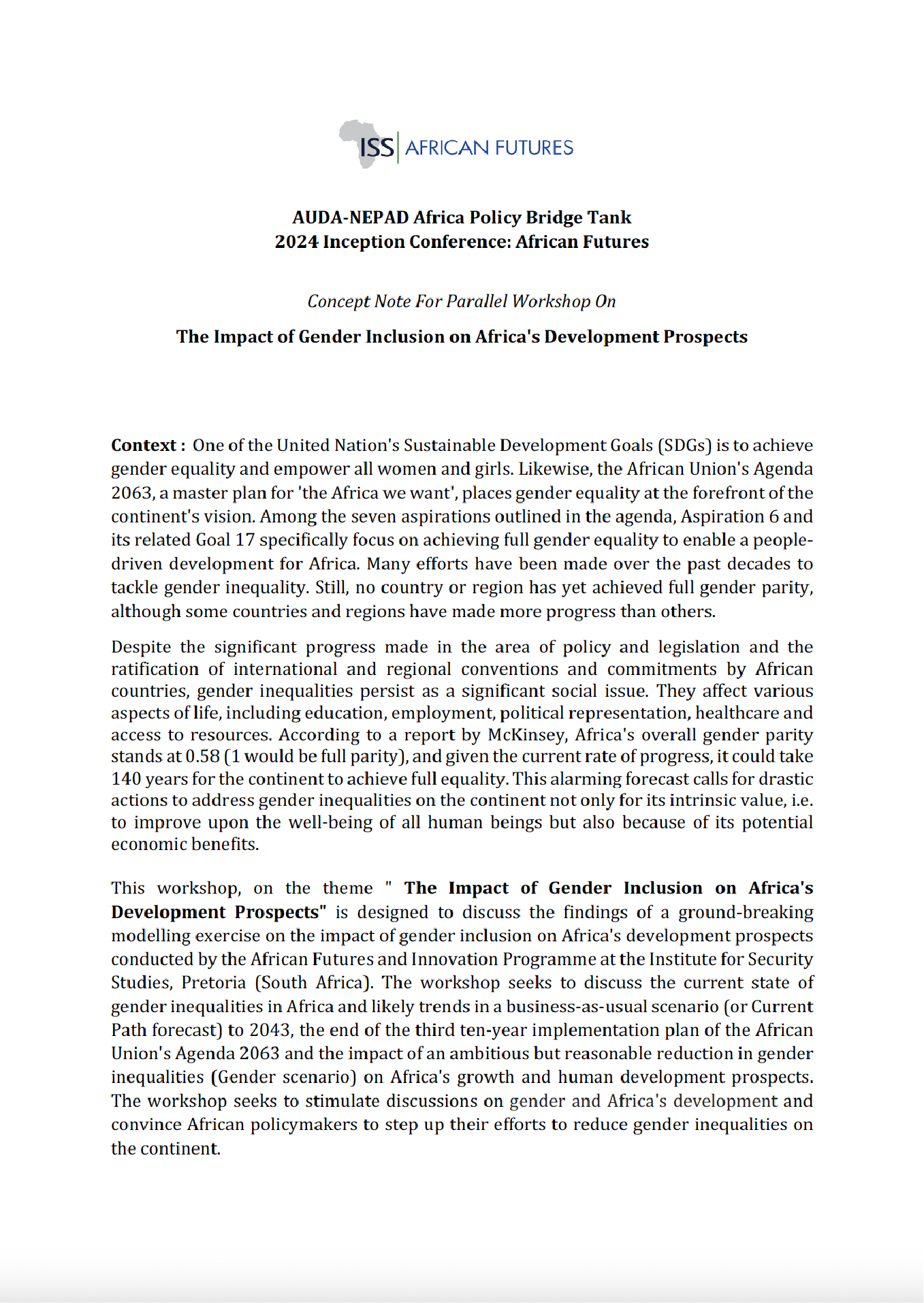One of the United Nation's Sustainable Development Goals (SDGs) is to achieve gender equality and empower all women and girls. Likewise, the African Union's Agenda 2063, a master plan for 'the Africa we want', places gender equality at the forefront of the continent's vision. Among the seven aspirations outlined in the agenda, Aspiration 6 and its related Goal 17 specifically focus on achieving full gender equality to enable a people driven development for Africa. Many efforts have been made over the past decades to tackle gender inequality. Still, no country or region has yet achieved full gender parity, although some countries and regions have made more progress than others.
Despite the significant progress made in the area of policy and legislation and the ratification of international and regional conventions and commitments by African countries, gender inequalities persist as a significant social issue. They affect various aspects of life, including education, employment, political representation, healthcare and access to resources. According to a report by McKinsey, Africa's overall gender parity stands at 0.58 (1 would be full parity), and given the current rate of progress, it could take 140 years for the continent to achieve full equality. This alarming forecast calls for drastic actions to address gender inequalities on the continent not only for its intrinsic value, i.e. to improve upon the well-being of all human beings but also because of its potential economic benefits.

